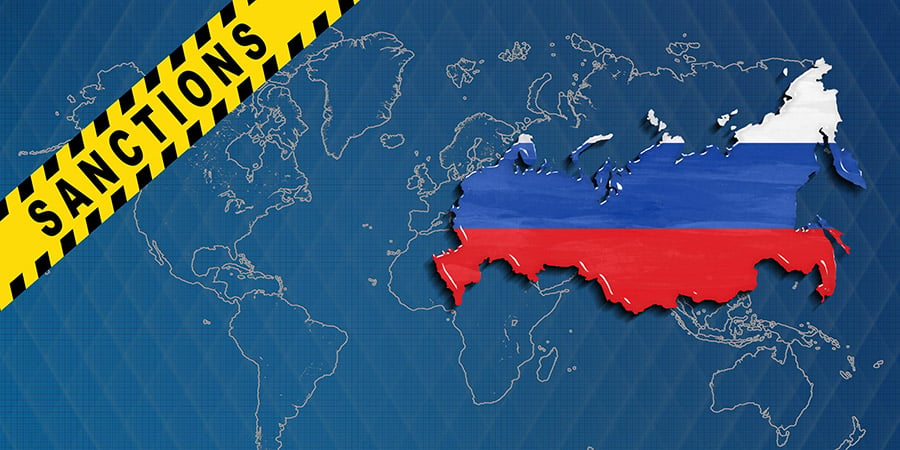International sanctions on Russia

News Report: Western Sanctions on Russia
Date: July 6, 2024
In response to geopolitical tensions and actions deemed aggressive by the international community, Western nations, particularly the United States and the European Union, have imposed a comprehensive array of sanctions on Russia. These sanctions, targeting vital sectors such as finance, energy, and defense, aim to undermine Russia’s economic stability and reduce its influence on the global stage.
Financial Sanctions
Financial sanctions have been among the most impactful measures, severely restricting Russia’s access to international capital markets. Key components include:
-
Asset Freezes: The U.S. and EU have frozen the assets of numerous Russian banks, individuals, and entities, preventing them from accessing their holdings abroad.
-
SWIFT Ban: Selected Russian banks have been cut off from the SWIFT financial messaging system, complicating international transactions and trade.
-
Loan Restrictions: Western banks and financial institutions are prohibited from providing loans or credit to major Russian banks and companies, stifling their ability to raise capital.
Energy Sector Sanctions
Given Russia’s heavy reliance on its energy sector for revenue, sanctions targeting this industry are particularly damaging:
-
Export Bans: Restrictions on the export of technology and equipment essential for oil exploration and production have been imposed, hindering the development of Russia’s oil and gas resources.
-
Investment Prohibitions: Western companies are barred from investing in Russian energy projects, leading to a significant slowdown in new ventures and collaborations.
-
Oil Price Cap: The G7 nations have implemented a price cap on Russian oil exports, designed to limit Russia’s revenue while keeping global oil prices stable.
Defense Industry Sanctions
Sanctions on the defense sector aim to weaken Russia’s military capabilities:
-
Arms Embargo: The EU has enforced an arms embargo, prohibiting the sale of military equipment and technology to Russia.
-
Technology Restrictions: The export of dual-use goods and technology, which can be used for both civilian and military purposes, is heavily restricted.
-
Contract Cancellations: Numerous defense contracts with Russian entities have been canceled, disrupting supply chains and project timelines.
Economic and Humanitarian Impact
The sanctions have had a profound impact on the Russian economy. The ruble has experienced significant depreciation, inflation rates have soared, and the overall economic growth has slowed. The sanctions have also led to a reduction in foreign direct investment and have forced Russian businesses to seek alternative markets and suppliers.
Additionally, ordinary Russian citizens have felt the brunt of these measures. Rising prices for basic goods, shortages of certain products, and increased unemployment rates have created economic hardships for many.
Geopolitical Reactions
Russia has responded to these sanctions with a mix of defiance and adaptation. The Russian government has intensified efforts to strengthen economic ties with non-Western countries, particularly China and India, and has sought to develop domestic alternatives to replace restricted imports.
Diplomatically, Russia has condemned the sanctions as illegal and unjustified, arguing that they exacerbate global tensions and hurt ordinary people more than political leaders. In turn, the Kremlin has imposed counter-sanctions on Western nations, targeting specific products and industries.
Future Outlook
As the geopolitical landscape continues to evolve, the future of these sanctions remains uncertain. While Western nations maintain that the sanctions will stay in place until Russia changes its course, the effectiveness and long-term impacts of these measures will depend on global economic dynamics and diplomatic negotiations.
The international community watches closely as the situation unfolds, recognizing that the sanctions not only affect Russia but also have broader implications for global trade, energy markets, and geopolitical alliances.
Conclusion
The sanctions imposed on Russia by Western nations represent a significant attempt to curtail its economic and political power. By targeting key sectors, these measures aim to pressure Russia into altering its behavior on the global stage. However, the repercussions of these sanctions are complex and far-reaching, impacting both the Russian economy and the broader international community.